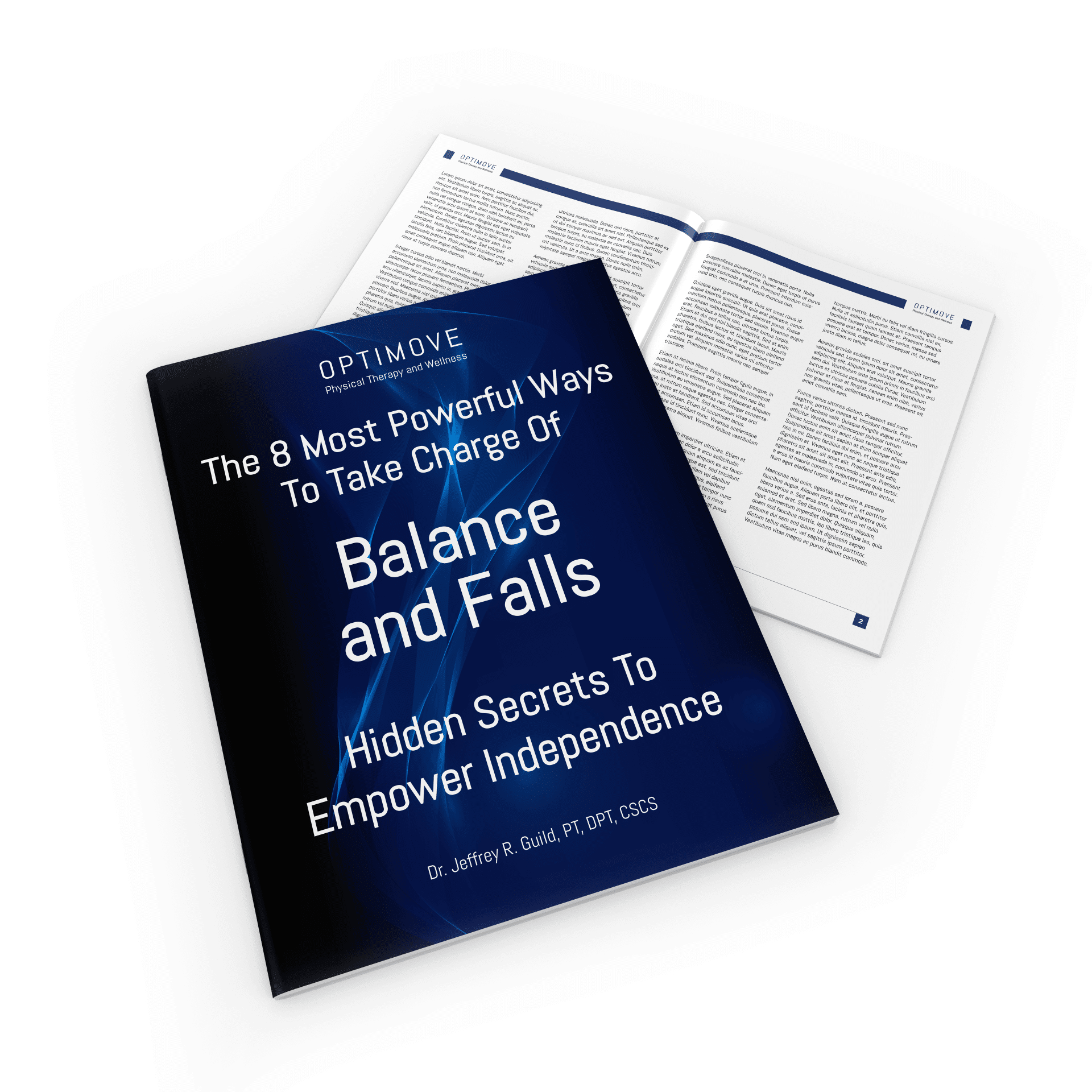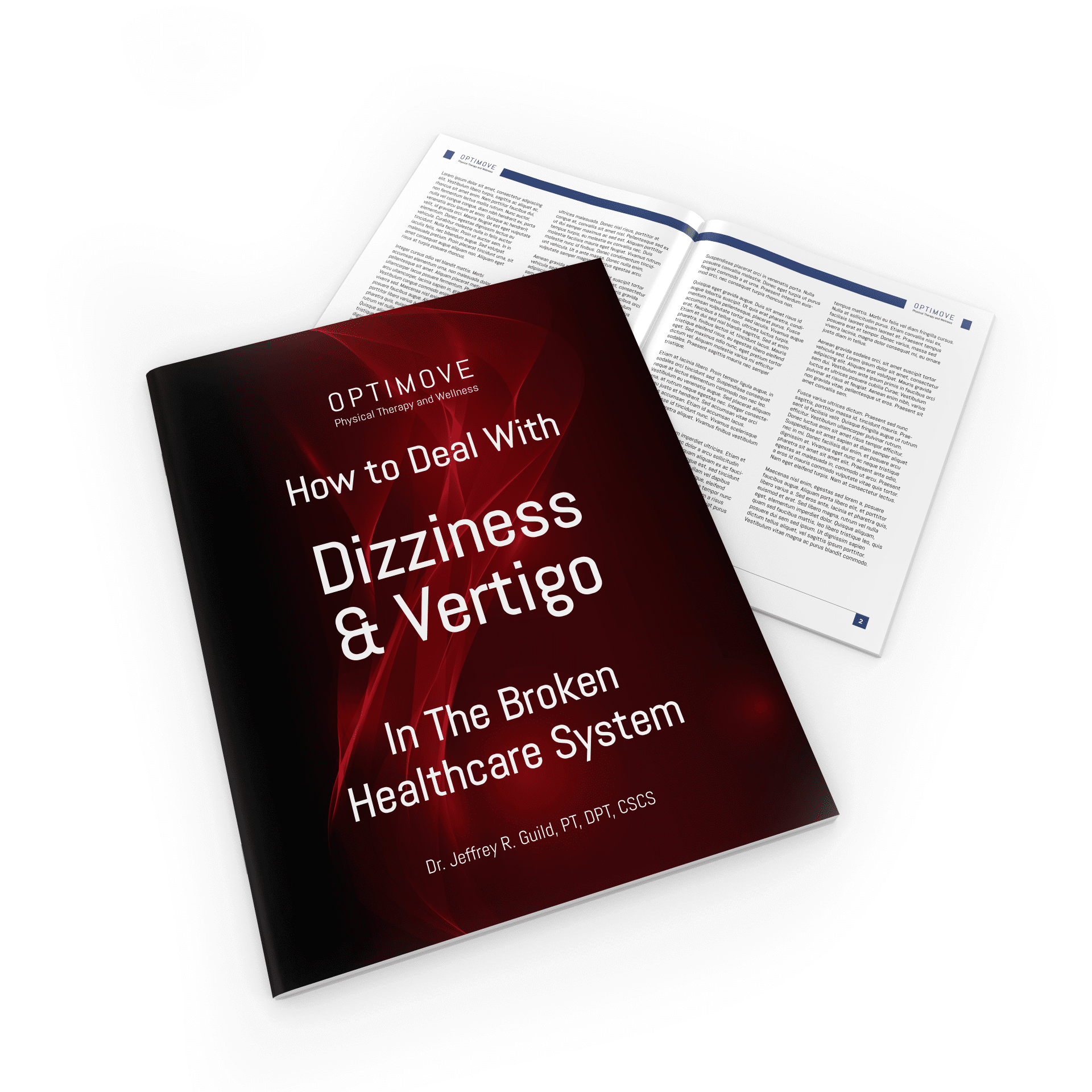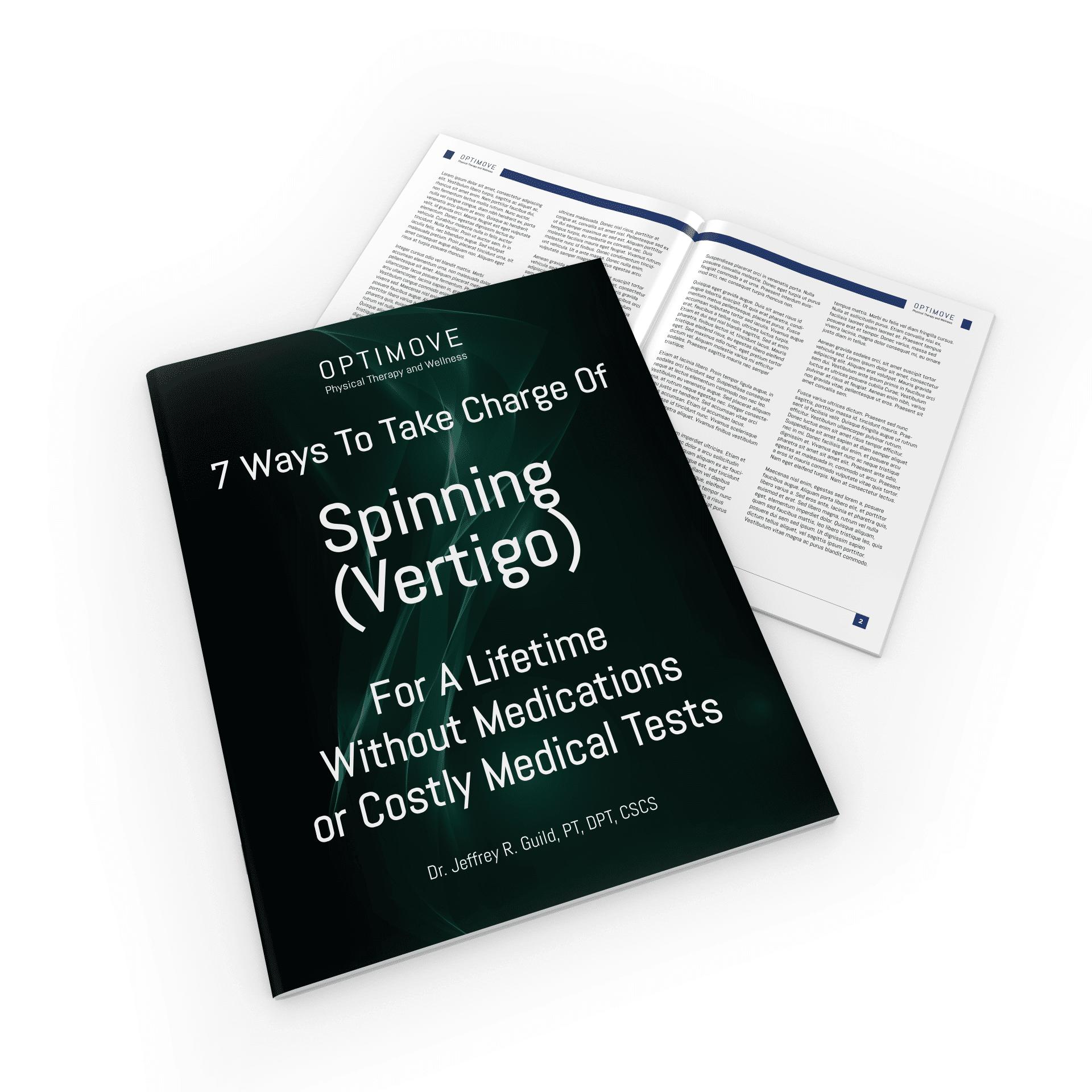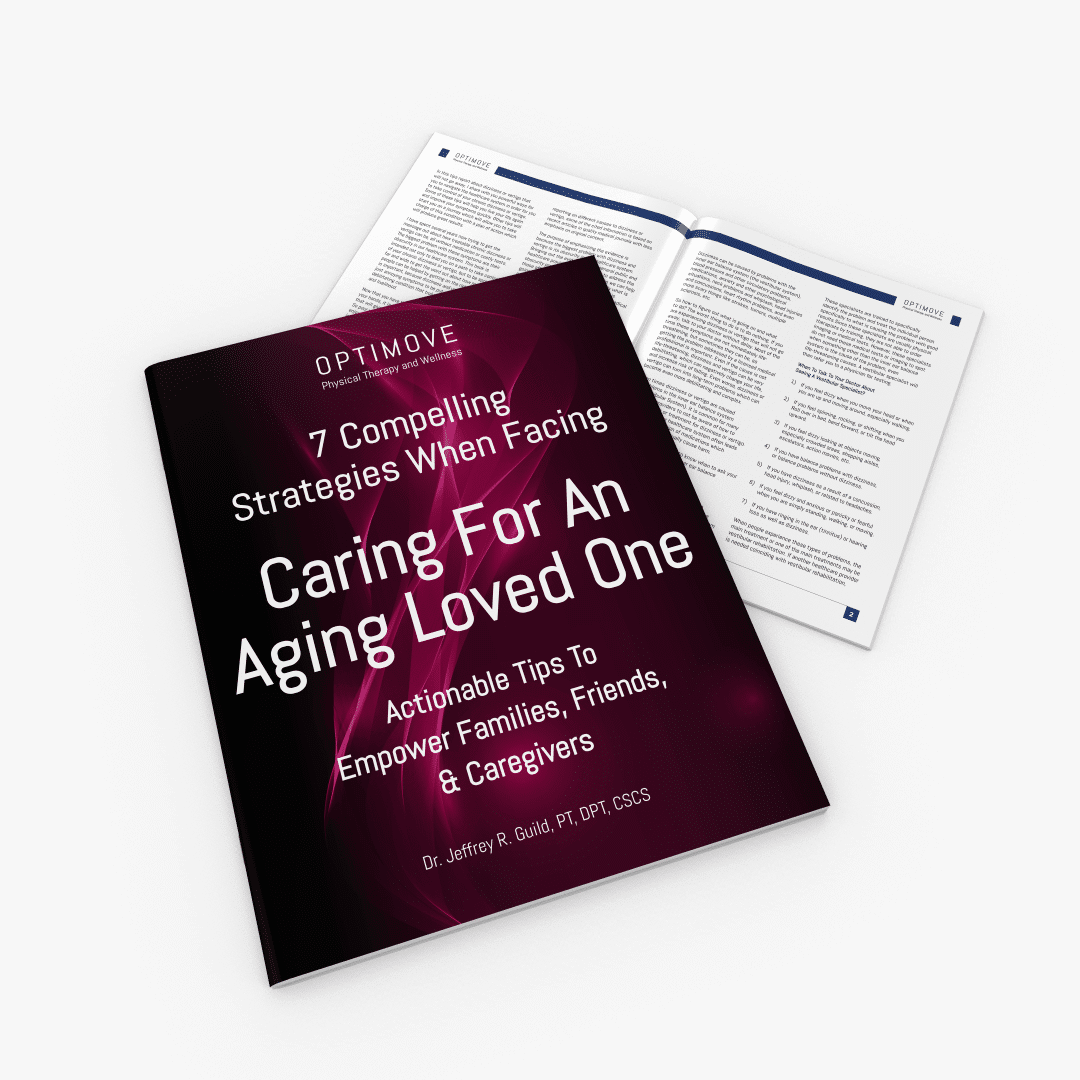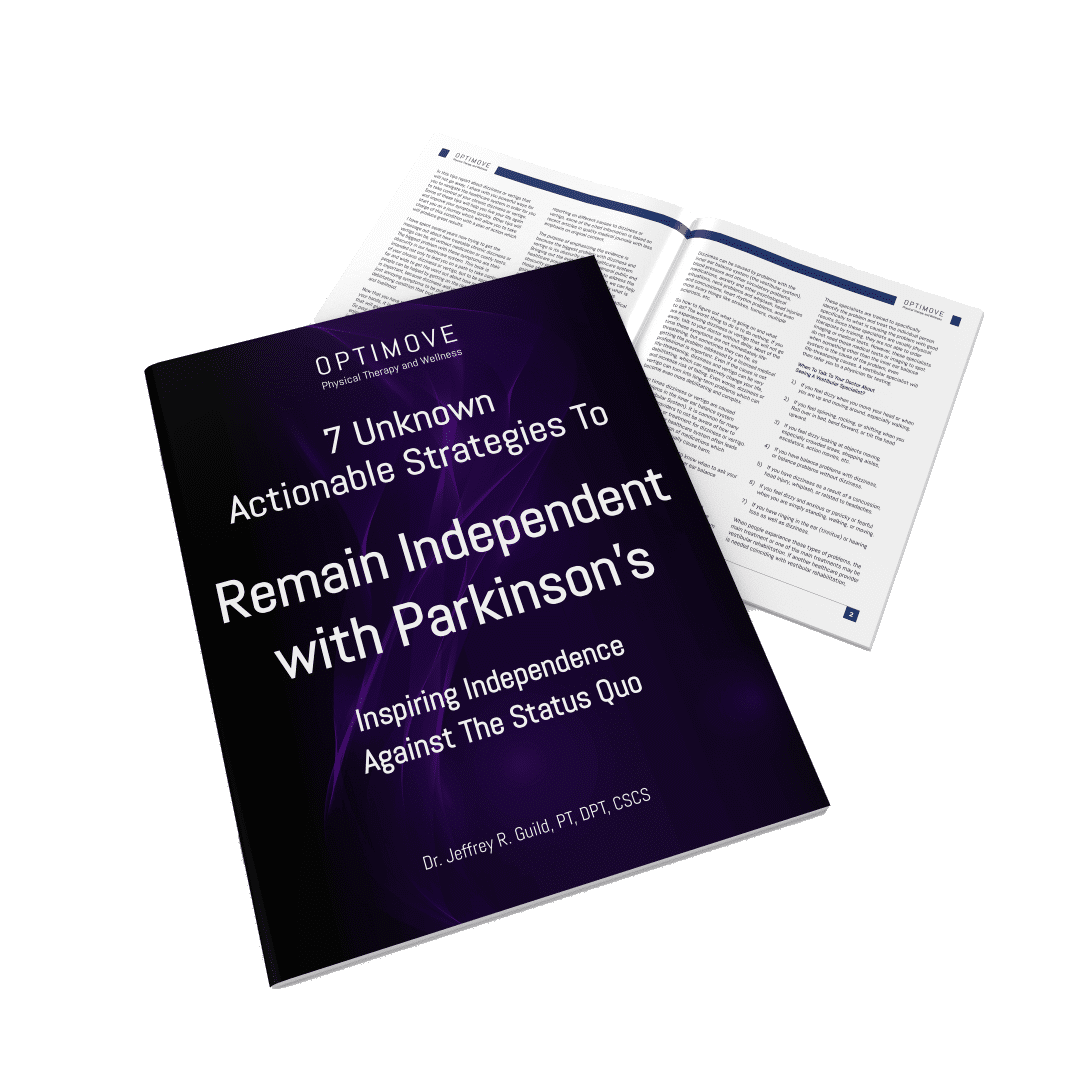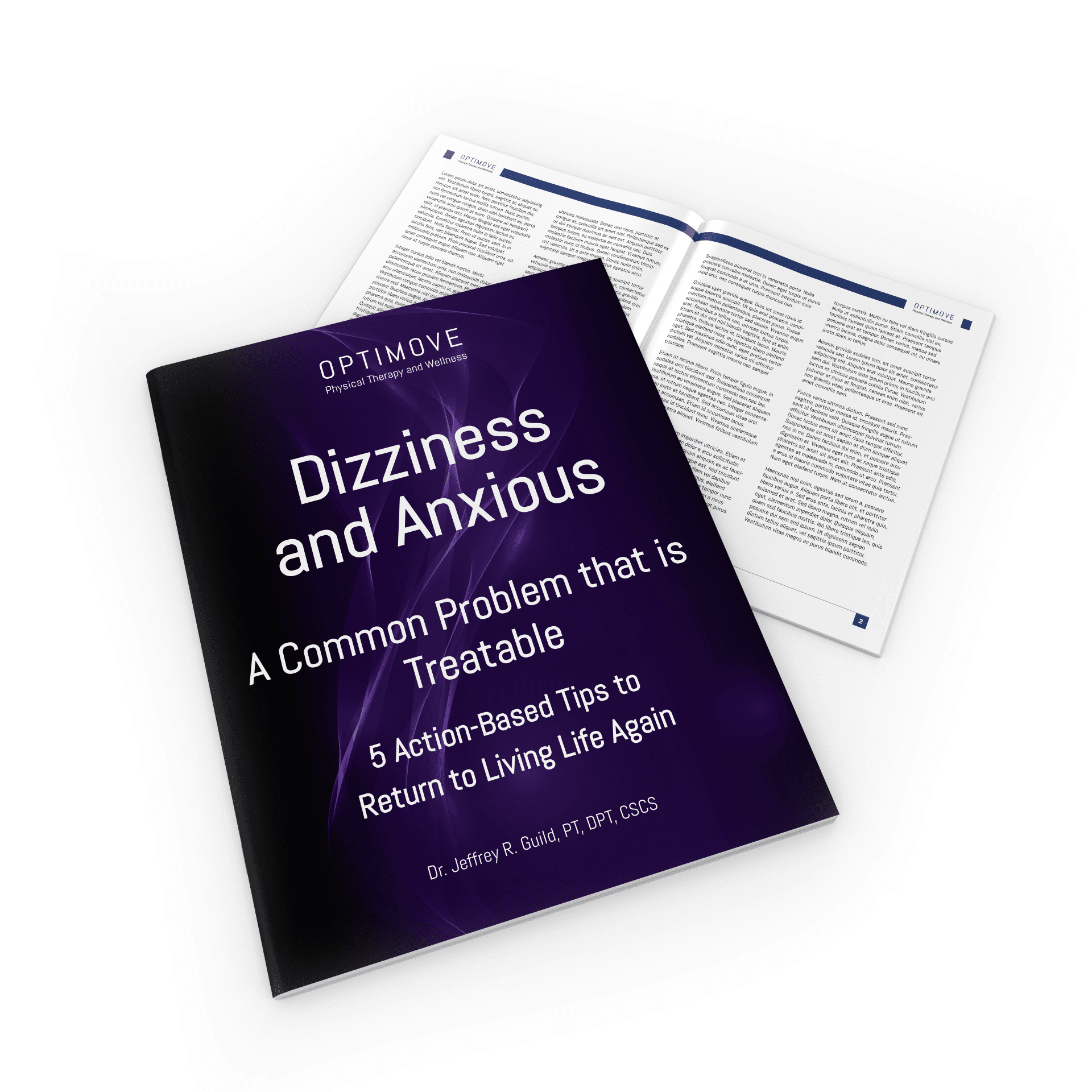Dr. Jeffrey Guild shares a story about a patient who had been in a coma for six months and was experiencing dizziness, shortness of breath, and panic when walking.
He believes that, with the right explanation and treatment plan, people with vestibular disorders can overcome their problems and regain their independence.
Do you or an aging loved one struggle with balance and falls? There is hope. Let us empower you to maintain your independence at home and in the community.
Click the link below to book your free in-home discover visit: https://old.optimovedfw.com/balanceandfallsfb
Dr. Jeffrey Guild (00:00:00) – So on a quick story about one of the ways that I got hooked on working with people with dizziness and balance disorders. And it was one incredible gentleman that I saw. And then after that, I was hooked and I couldn’t go back. So if you don’t know me, I’m Dr. Jeffrey Guild, physical therapist, owner of Optimum Physical Therapy. And we empower adults to remain active and independent in their homes and in the community. And we like to get these stories and information out to people to empower more people to be able to solve some of their movement problems so they can be more independent and to be able to get back to their life again. So back to the story. I was on my student clinical and I was working with the physical therapist who was going to become basically my vestibular mentor, the person who trained me on how to become a vestibular specialist, to work with people at dizziness and vertigo and balance disorders. And at the time a gentleman came in and he had been in a coma for about six months.
Dr. Jeffrey Guild (00:00:51) – And he was an older gentleman, probably about 75 years old, and his wife came in as well. And they were obviously both very active and independent people. And from this whole experience, he had aged quite a bit. He didn’t look 75 anymore. He looked more 85. And on top of that, after being in the coma, he had, of course, a lot of balance, problems and weakness problems. He’d been through physical therapy and rehab and all that. So he walks in and basically his main problem, of course, was dizziness, but not only dizziness, but just walking across the room. He would get short of breath and his heart would race and he would go into a panic type situation. And he was walking into the clinic basically with a walker and putting a lot of weight on it at the time. And after figuring out what was going on, my mentor basically was able to explain everything that was going on with him. And he had seen many, many doctors. He had seen, of course, as internist, neurologist, cardiologist, pulmonologist.
Dr. Jeffrey Guild (00:01:49) – He’d seen all these other specialists because his heart was racing and he was getting short of breath just walking across the room. These odd symptoms would be happening and my mentor is able to look at them and assess what was going on, test everything. She was able to sit down with him and basically explain, Hey, here’s what’s going on. Fundamentally, when your balance system is stimulated, your nervous system kicks in to a nerve that connects to your heart, your lungs and all these other things that are all connected. So what you’re getting is this neurological cause to your dizziness, and that’s why your heart is racing. That’s why you’re getting short of breath just walking across the room. Now, this condition is now known as persistent postural perceptual dizziness, Big fancy word for basically someone experiences a vestibular or dizziness or balance problem of some type. In this case, an extreme example, He was in a coma for six months and just lying on his back. So of course, he came out of that, but he’d be very dizzy because his balance system was very, very weak.
Dr. Jeffrey Guild (00:02:53) – And from that, we know from this condition that from the imaging studies, now that we know the cause is a disruption to the cortex, basically the way that the brain interprets information coming into and out of the vestibular system and into the brain and all sorts of changes happens. We have a bunch of fMRI studies now to show basically what happens with persistent postural perceptual dizziness. This disorder is in the past called chronic subjective dizziness in about 5 or 6 other things. And recently it’s been combined into one, recognizing that yet these are all the same types of conditions. It’s basically a neurologically caused panic disorder when people move. And so then they walk across the room like they’re walking on eggshells. And every time their vestibular system, their main central balance systems is stimulated, their body kind of pretty much panics. And that’s what’s happening with this gentleman. And by the time that my mentor was done working with him, he was speed walking out of the clinic without a walker perfectly balanced. And that is actually very consistent with the condition.
Dr. Jeffrey Guild (00:04:00) – And this is not true, of course, with all balance disorders or vestibular disorders. But in this one case scenario, this was the situation. And so he was able to walk and speed, walk out of the room and then be able to step down from a curb and be perfectly fine and balance. But he needed that explanation. He needed that reassurance, and he needed his body to be kind of reintroduced to the concept of normal movement again. And my mentor is able to give that to him. And basically, as she was explaining all this to him and he had seen how he could now walk across the room without a problem, you know, of course he was in tears. His wife was in tears. I was having to, you know, bite my tongue to prevent myself from breaking down his very emotional moment at the time. And that was one of the main patients. Of course, there were a whole a lot of people that were very inspiring just like this. But after that patient that I saw, I never went back.
Dr. Jeffrey Guild (00:04:56) – I then pursued becoming a vestibular specialist. Basically from there on out, because it was very powerful to see what a specialist was able to do, especially in this type of scenario. The person who had seen all these other specialists, person who had given up hope and this was just another provider that was not going to know what was going on with him. And he and his wife had lost hope by this point. And to identify specifically what is going on and to be able to explain that to people and then to be able to give them a solution and to be able to see, of course, that immediate change where now they can speed walk out of the room was very powerful. Now, of course, now all vestibular disorders and balance disorders are like this. Sometimes it can take a lot longer than that and it can be a longer hard grind to be able to solve these sorts of balance problems and similar problems. But in this one case, of course, you get that immediate hit, that immediate gratification of, wow, like this person is already so much better just from an explanation about what’s going on.
Dr. Jeffrey Guild (00:05:57) – And this is especially true with persistent postural perceptual dizziness, or you might see it as PD. And no matter what the diagnosis is, this is true for a lot of diagnoses that are more obscure. Just getting an explanation of what is going on, getting in front of the right specialist, and then to build to figure out a plan to address the problem is very, very powerful. So this is the story of what got me completely hooked on vestibular disorders. And I’ve been hooked ever since. Loved working with people with dizziness and vertigo and balance disorders. And these are incredible people who have to overcome a huge, huge problem in their life. And sometimes they can struggle for months and years and they shouldn’t have to because so much can be done for people suffering with vestibular disorders. So if you like this information, stories and others like it, subscribe to our channel, share it with a friend and it’ll make a big impact in getting this information out to other people. And we’ll look forward to sending you more information and stories just like this.

